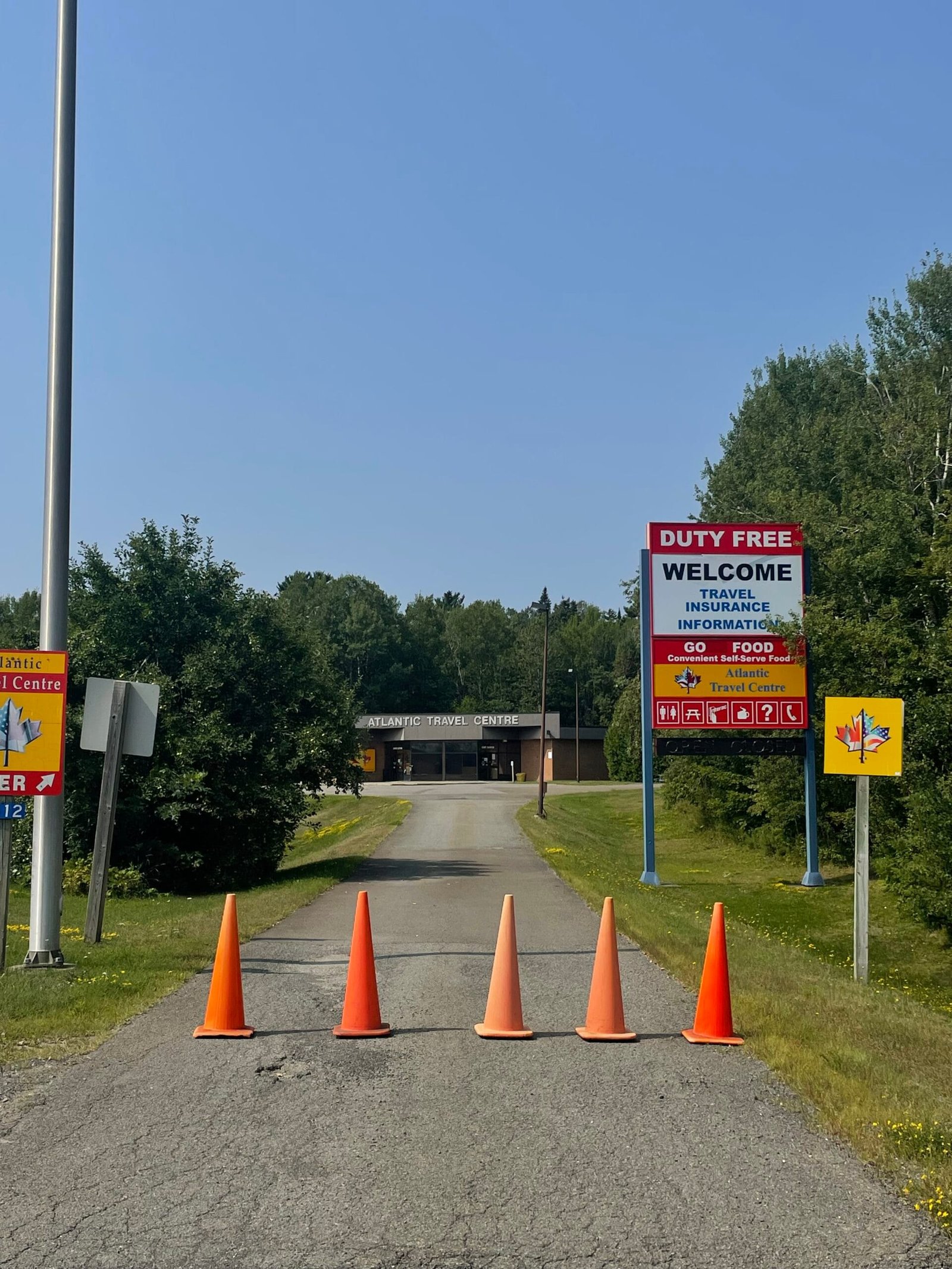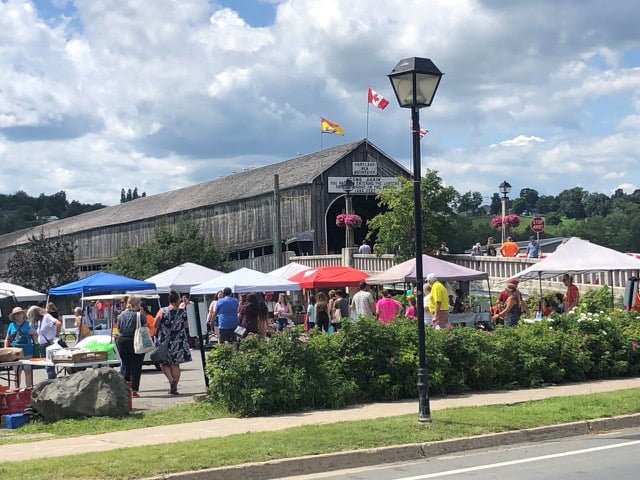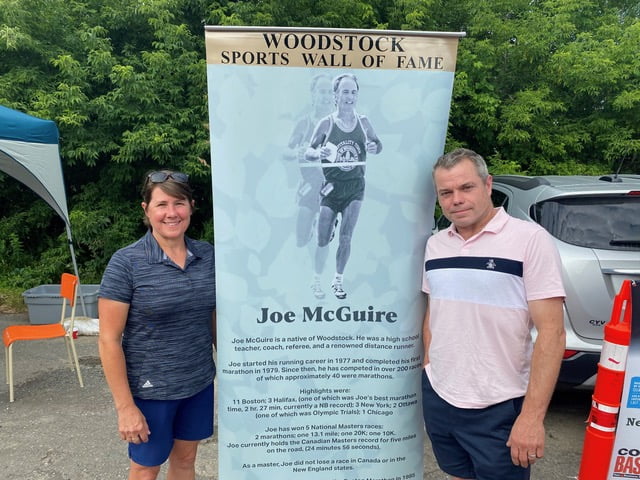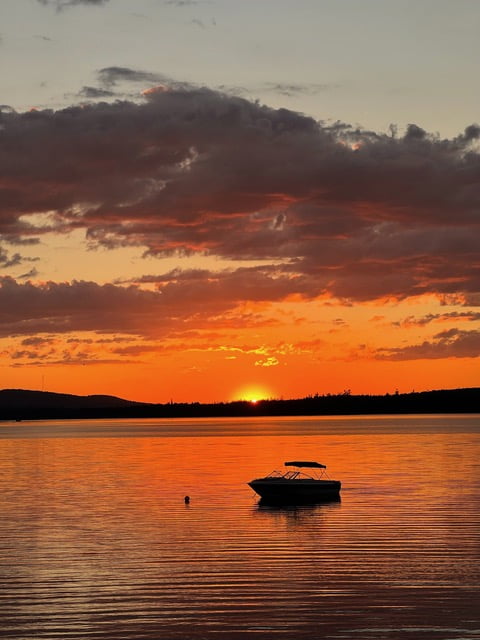Demise of Slipp family business blamed on tariffs, travel boycott, pandemic and lack of federal assistance
On Friday, Aug. 2, Woodstock Duty Free Shop & Atlantic Travel Centre owner John Slipp locked the doors for the last time. The business was started by his father 40 years ago. Slipp has been at the helm for 31 years.
“This is not how I expected things to end,” said Slipp.
Since 2020, Slipp’s business has struggled.
“They shut the border in 2020. We were closed from March 2020 to Aug. 2021. Business never really rebounded. Then came the tariff threats and people boycotting travel to the U.S.”
Slipp laid off his last employee in June and worked alone in the store until it closed.
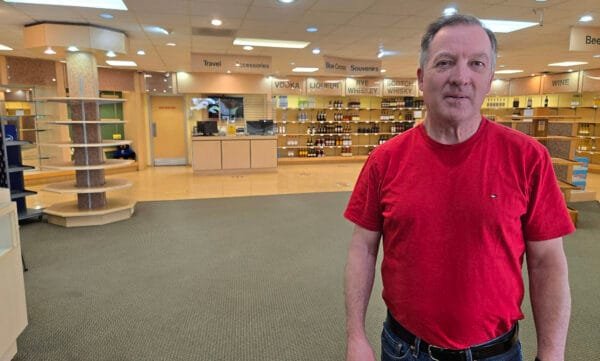
Over the past few weeks, he said he’s thought a lot about his dad, who opened the store on June 1, 1985. George Slipp died in 2012.
“My father was a strong, resilient man,” said Slipp. “He would have been very upset about the whole situation. I think he would have kept fighting. That’s what I’ve been struggling with, but without government help, and the tariff threat, and no travellers, you can only hang on so long when you aren’t making money.”
Slipp and the Frontier Duty Free Association, which represents 32 duty-free shop owners across Canada, have been lobbying the provincial and federal governments for assistance since the pandemic shutdown. To date, no financial support has been offered to the group.

Slipp’s store is the first to close across the country, but the executive director of the duty-free association, Barbara Barrett, is worried others may follow.
“This is heartbreaking,” said Barbara Barrett. “But John is not alone. Others are very close (to closing). Our latest member survey shows that up to one-third of Canadian land border duty free stores are at risk of closing if current conditions continue.”
Duty-free stores are export-only businesses that are only allowed to sell to cross-border travellers. Slipp’s store is one of two in the province. The other one is at the St. Stephen crossing.
Barrett says she isn’t sure why the government has not offered assistance to this business sector, and understands Ottawa is currently handling several urgent and complex files. Still, she says the closure of Slipp’s store is the cost of inaction.
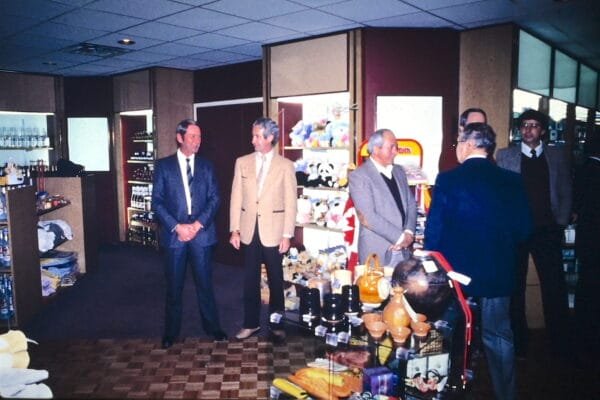
“The flip-side of this is that with modest action, the government could stabilize the sector and prevent further losses.”
Barrett says help could include regulatory fixes that could help stores compete with other retail businesses, coupled with targeted financial ‘pandemic-like’ support, noting that the sector is small and costs would be minimal.
Slipp isn’t optimistic that Ottawa even has the stores on its radar.
“We’ve spent years lobbying government, and we’ve had no response,” he said.
For Slipp, it’s not just the loss of his store, but the loss of relationships he’s built over the 31 years he served cross-border travellers.
“I feel like I’m abandoning customers,” he said. “I’ve had so many of them reach out. Many are disappointed, but understand. A lot of my American shoppers are tuned into what’s going on and realize the difficulty we are facing, sometimes more than the Canadian customers.”

On Aug. 9, a couple from Halifax pulled up while the River Valley Sun was taking pictures of the store.
Barbara Jollota and Dave Chatterton have stopped at Slipp’s store every summer for 15 years.
“Our vacation always starts right here, and this is really sad,” said Chatterton about the closure.
“John was always so helpful and kind. He’s been part of our travels for a long time. I’m sorry to see this.”
As for Slipp’s future, he’s looking at options for himself and his store.
“We own the building but lease the land,” he said. “I’m going to try and sell the building and the business if possible. I’ve had a few inquiries, so we’ll see where it goes.”
Slipp says coming to terms with the loss of the business will take time.
“Financially, the reality of the loss of income is significant. Emotionally, this is a business my father built. It was a good business. Not seeing a light at the end of the tunnel has been hard. There were days (before the closure) that I would think, maybe I should be pushing on; maybe I shouldn’t give up. The reality is that financially, you can only do this for so long. We just had to cut our losses.”


